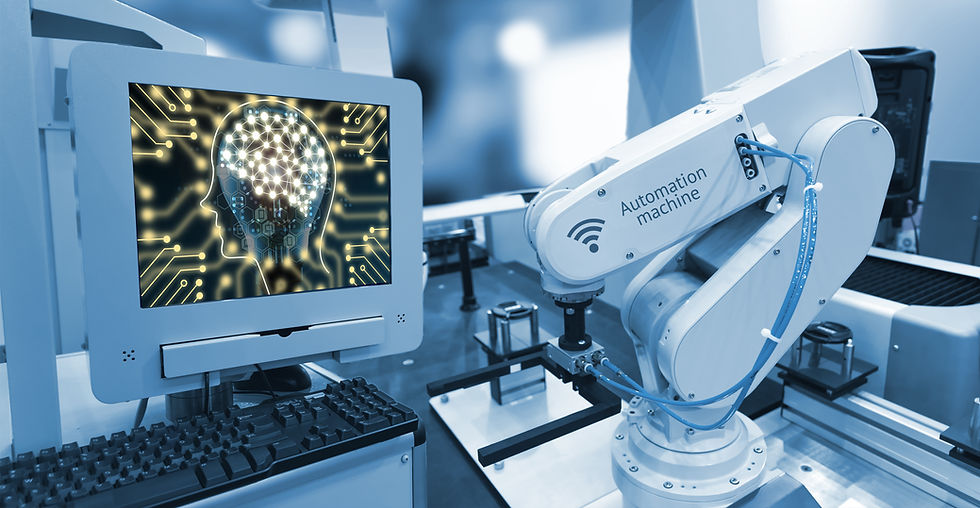Robotics and Careers
- APSGY Literal Architect

- Jun 23, 2024
- 3 min read
Updated: Jan 12, 2025
In recent years, the field of robotics has experienced exponential growth, transforming various industries and creating a myriad of career opportunities.

From manufacturing and healthcare to entertainment and agriculture, robotics is revolutionizing the way we live and work. Let us explores the diverse career paths within robotics, and the opportunities in this thriving industry. Let’s dive into to know more about the skills required, and the exciting prospects for future professionals in this dynamic industry.
The Expanding World of Robotics
Robotics involves the design, construction, operation, and use of robots to perform tasks traditionally carried out by humans. These tasks can range from simple repetitive actions to complex operations requiring high precision and intelligence. The integration of artificial intelligence (AI), machine learning, and advanced sensor technology has significantly expanded the capabilities of robots, making them indispensable in numerous sectors.
Important Sectors Utilizing Robotics
Manufacturing and Automation: Robots have long been used in manufacturing for tasks such as assembly, welding, and painting. With advancements in technology, they now perform complex tasks with high precision and efficiency, significantly improving productivity and quality.
Healthcare: In healthcare, robots assist in surgeries, rehabilitation, and patient care. Surgical robots provide minimally invasive options, enhancing precision and reducing recovery times. Robots also support healthcare workers by performing routine tasks, allowing them to focus on more critical aspects of patient care.
Agriculture: Agricultural robots, or "agbots," are transforming farming by automating tasks like planting, harvesting, and crop monitoring. These robots increase efficiency, reduce labor costs, and improve crop yields.
Logistics and Warehousing: Robots in logistics handle sorting, packaging, and transporting goods within warehouses. Autonomous vehicles and drones are also being developed for last-mile delivery, streamlining the supply chain.
Entertainment and Service Industry: From animatronics in theme parks to robot waiters in restaurants, robotics is enhancing customer experiences in the entertainment and service industries.
Glimpse of the Career Paths in Robotics
Robotics Engineer: Robotics engineers design, build, and maintain robots. They work on developing new robotic systems and improving existing ones. This role requires strong skills in mechanical engineering, electronics, and computer programming.
Software Developer: Robotics software developers create the algorithms and code that control robots. Proficiency in programming languages like Python, C++, and ROS (Robot Operating System) is essential for this role.
AI and Machine Learning Specialist: These professionals develop AI models that enable robots to learn from data and improve their performance. This role involves expertise in machine learning, data analysis, and neural networks.
Robotics Technician: Technicians are responsible for assembling, testing, and maintaining robotic systems. They work closely with engineers to ensure robots operate smoothly and efficiently.
Research Scientist: Robotics research scientists work in academic or industrial settings, conducting experiments to advance the field of robotics. This role often requires a Ph.D. in robotics, computer science, or a related field.
Product Manager: Product managers in robotics oversee the development of new robotic products, from concept to market launch. They coordinate between engineering, marketing, and sales teams to ensure successful product development.
Essential Skills for a Career in Robotics
Technical Proficiency: A solid understanding of mechanical engineering, electronics, and computer programming is crucial.
Problem-Solving Skills: The ability to troubleshoot and devise creative solutions is vital in developing and maintaining robotic systems.
Analytical Thinking: Strong analytical skills are necessary for designing efficient algorithms and improving robotic performance.
Team Collaboration: Robotics projects often involve multidisciplinary teams. Effective communication and teamwork are essential.
Continuous Learning: The field of robotics is rapidly evolving. Professionals must stay updated with the latest advancements and continually enhance their skills.
Robotics & Future
The demand for robotics professionals is expected to grow significantly in the coming years. According to the International Federation of Robotics (IFR), the global robotics market is projected to reach new heights, driven by advancements in AI, machine learning, and automation technologies. Emerging fields such as swarm robotics, soft robotics, and biohybrid robots are opening up new avenues for innovation and career opportunities.
A career in robotics offers the chance to be at the forefront of technological innovation, contributing to advancements that can profoundly impact various aspects of society. Whether you're interested in engineering, software development, research, or product management, the field of robotics provides diverse and rewarding career paths. As technology continues to evolve, the possibilities within robotics are boundless, making it an exciting and promising area for aspiring professionals.



